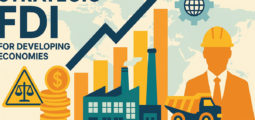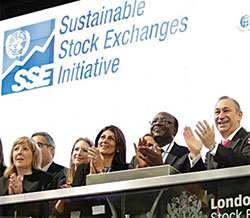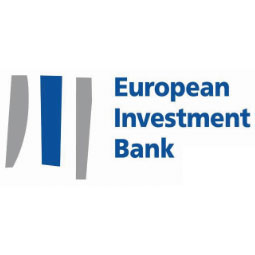[vc_row][vc_column width=”1/2″][vc_column_text]
Poland
The light green area is the rest of the European Union
Poland was the 21st largest economy in the world by nominal GDP in 2018. Its GDP per capita was $15,424 USD. It is a large country in central Europe with the fifth largest population in the EU (excluding the UK) in 2018. It was ranked 30th in the World Bank's Human Capital Index and 23rd in the Economic Complexity Index in 2017. It is a member of the EU and OECD. Services was the largest economic sector in 2018 (56 percent of GDP), followed by manufacturing (18 percent), and agriculture (2.4 percent). In 2017, the largest export sectors were services (21 percent), agriculture (15 percent), machinery (12.8 percent), vehicles (11.2 percent), and chemicals (11.1 percent). The largest individual exports were ICT services (10.2 percent), transport (5.6 percent), travel and tourism (4.6 percent), and motor vehicle parts (4.6 percent). Its largest export partners were Germany (27 percent), Czechia (6.3 percent), the UK (6 percent), and France (5.5 percent). The largest goods imports were cars (3.6 percent), crude oil (3.4 percent), and part of motor vehicles (3.2 percent). Poland regained independence in 1918 following World War One. After World War Two it came under Soviet control. The economy was transformed from agriculture and mining to an industrial base. In 1989, the Solidarity movement won in partially-free elections effectively ending Soviet control. Since then the economy has grown at around 4 percent per year and even avoided recession during the global financial crisis. Growth was initially unlocked by prudent fiscal policy, the taming of hyperinflation, and a range of free-market reforms including large-scale privatisations, the removal of subsidies and price controls, and a convertible currency. This then led to increases in labour productivity and internal consumption. After joining the EU in 2014, the boom continued as exports and investments increased, leading to further increases in employment and consumption. In 2018, FTSE Russell reclassified Poland from an "emerging" to "developed" market.
[/vc_column_text][vc_column_text] Its population in 2018 was 38,104,832 [1]
Its population in 2018 was 38,104,832 [1]
 In 2015, 11.91% of its total energy
In 2015, 11.91% of its total energy
consumption was renewable [2]
 In 2021, its GDP grew by 5.73% [2]
In 2021, its GDP grew by 5.73% [2]
 In 2021 it had a negative Current
In 2021 it had a negative Current
Account Balance of US$bn 5.76 [3]
 Its unemployment rate in 2021 was 3.50% [3]
Its unemployment rate in 2021 was 3.50% [3]
 Its Expenditure on R&D (as a percentage of
Its Expenditure on R&D (as a percentage of
GDP) in 2020 was 1.39% [2]
 A Big Mac will set you back the
A Big Mac will set you back the
local equivalent of US$2.80 [4]
What free trade areas or economic unions is it a member of?
Member of the European Union (EU) since 01/05/2004
Other members:
Austria, Belgium, Bulgaria, Croatia, Cyprus, Czechia, Denmark, Estonia, Finland, France, Germany, Greece, Hungary, Ireland, Italy, Latvia, Lithuania, Luxembourg, Malta, Netherlands, Portugal, Romania, Slovakia, Slovenia, Spain, Sweden
What trade deals are there between European Union and other countries and economic unions?
EU - Andorra Customs Union (from 01/01/1991)
European Single Market (SM) (from 01/01/1993)
EU - Sri-Lanka Co-operation and Partnership Agreement (from 01/04/1995)
EU - Türkiye Customs Union (from 31/12/1995)
EU - Faroe Islands Agreement (from 01/01/1997)
EU - Palestinian Authority Interim Association Agreement (from 01/07/1997)
EU - Tunisia Association Agreement (from 01/03/1998)
EU - Armenia Partnership and Cooperation Agreement (from 09/09/1999)
EU - Morocco Association Agreement (from 01/03/2000)
EU - Israel Association Agreement (from 01/06/2000)
EU - Mexico Global Agreement (from 01/10/2000)
EU - San Marino Customs Union (from 01/04/2002)
EU - Jordan Association Agreement (from 01/05/2002)
EU - North Macedonia Stabilisation and Association Agreement (from 01/04/2004)
EU - Pakistan Co-operation agreement (from 29/04/2004)
EU - Egypt Association Agreement (from 01/06/2004)
EU - Chile Association Agreement and Additional Protocol (from 01/03/2005)
EU - Algeria Association Agreement (from 01/09/2005)
EU - Lebanon Association Agreement (from 01/04/2006)
EU - Albania Stabilisation and Association Agreement (from 01/04/2009)
EU - Pacific States Interim EPA (from 20/12/2009)
EU - Montenegro Stabilisation and Association Agreement (from 01/05/2010)
EU - Central America Association Agreement (from 01/08/2013)
EU - Serbia Stabilisation and Association Agreement (from 01/09/2013)
EU - Bosnia and Herzegovina Stabilisation and Association Agreement (from 01/06/2015)
EU - South Korea Free Trade Agreement (from 01/07/2015)
EU - Kosovo Stabilisation and Association Agreement (from 01/04/2016)
EU - Georgia Association Agreement (from 01/07/2016)
EU - Moldova Association Agreement (from 01/07/2016)
EU - Canada Comprehensive Economic and Trade Agreement (CETA) (from 21/09/2017)
EU - Eswatini (SADC) Economic Partnership Agreement (from 05/02/2018)
EU - Lesotho (SADC) Economic Partnership Agreement (from 05/02/2018)
EU - Mozambique (SADC) Economic Partnership Agreement (from 05/02/2018)
EU - Namibia (SADC) Economic Partnership Agreement (from 05/02/2018)
EU - South Africa Economic Partnership Agreement (from 05/02/2018)
EU - Botswana (SADC) Economic Partnership Agreement (from 05/02/2018)
EU - Japan Economic Partnership Agreement (from 01/02/2019)
EU - Eastern and Southern Africa States free trade agreement (from 07/02/2019)
UK - EU Trade Deal (from 01/01/2021)
[/vc_column_text][vc_column_text]What trade deals are there with other countries and economic unions?
None
[/vc_column_text][/vc_column][vc_column width=”1/2″][vc_column_text]Mukhisa Kituyi, UNCTAD: Sustainable Stock Exchanges and the 21st Century Challenge for Global Finance
Otaviano Canuto, World Bank Group: Liquidity Glut, Infrastructure Finance Drought and Development Banks
European Investment Bank: “Vienna Initiative” Keeps Credit Flowing
Hildegunn Kyvik Nordås: Why Do Countries Regulate Differently and How Does It Affect Trade?
CFI.co Meets Nuno Amado
Poland’s Power Surge
Vitali Klitschko: Punching Above His Weight
Poland Welcomes Migrant Workers
World Bank Group: Create Jobs by Focusing Industries to be Competitive
Confidence in Dubai Returns as Region’s Largest Real Estate Event Reports Strong Growth
Trade with the United Kingdom
Source: UK Office for National Statistics, October 2022.
Contains public sector information licensed under the Open Government Licence v3.0.





























































































